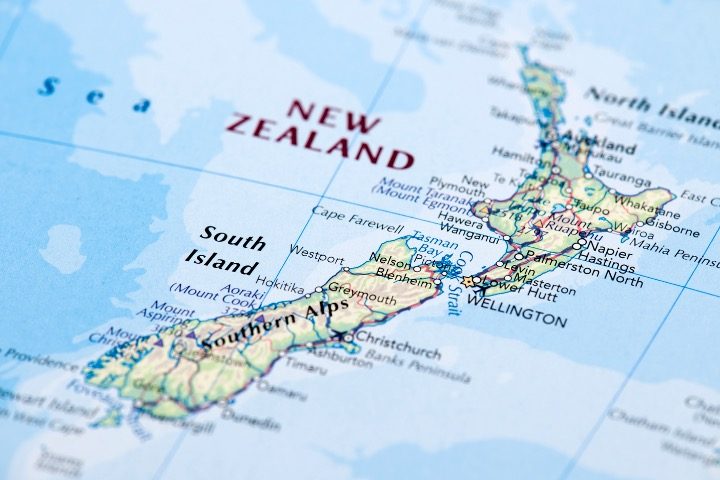
New Zealand’s agricultural sector may be the deciding factor in the island nation’s next general election, scheduled for October 14. Rural voters are angry over what many consider to be draconian climate-change policies that have made it far more difficult to do business in the nation.
Among those policies is extensive planting of pine trees, often on lands that had been set aside for grazing livestock, and an absurd attempt to tax methane emissions (cow burps and flatulence) in the agricultural sector. The animal emissions are set to start being taxed in 2025.
While New Zealand’s population is small, only about 5 million people, the agricultural sector is a large portion of the nation’s economy, with some 10 million cattle and up to 26 million sheep. Climate alarmists claim that over half of New Zealand’s greenhouse gas emissions come from the agricultural sector.
Farmers have begun to look to more conservative candidates to stem the green tide that many believe is destroying the nation’s agricultural sector. New Zealand’s farmers believe that they are being unfairly singled out as climate-change villains. Groundswell NZ is an activist organization that has arisen to question some of the government’s more radical climate policies.
“Understanding the impact of biogenic methane accurately is crucial to our plans to meaningfully mitigate climate change and adapt to its impacts. The IPCC itself has stated that the United Nations’ insistence on using the GWP100 (Global Warming Potential) measurement to calculate methane emissions, is overstating its effects by a factor of 3-4,” said Groundswell co-founder Bryce McKenzie.
McKenzie and his partner, Laurie Paterson, are currently traveling the nation on a tractor to make their concerns known to the nation.
“Rural New Zealanders and farmers in particular have found things really difficult for the last six year[s] and particularly the last three years when there has been a whole raft of regulations come in,” McKenzie said.
“There’s no way that rural New Zealand can stand another three years of this,” Paterson added. “I think this election really should … not [be] this television spectacular, reality TV, but people should look at the issues and vote accordingly.”
Last year, New Zealand experienced its own tractor protest, similar to the protests by farmers in the Netherlands. Farmers nationwide participated in the “We’re Not Going To Take It” protests last October. At the time, McKenzie called out the government for what he called “faux consultation” with the agricultural community regarding climate policies.
“The Government’s ideological commitment to punitive and counterproductive emissions taxes on food production is an existential threat to rural communities,” McKenzie said. “After years of faux consultation, the Government has given up on all pretense of a fair and workable agricultural emissions policy.”
“Instead, we have a tax that, on the Government’s own numbers, will result in up to a 20% reduction in production for Sheep & Beef farmers and a 6% reduction for Dairy farmers, while their emissions reductions will be replaced by less efficient foreign farmers due to emissions leakage,” he added.
“Looking good at the UN is not a good enough reason to send rural communities to the wall and drive food prices through the roof,” McKenzie concluded.
Prime Minister Chris Hipkins has been unsympathetic to the agricultural sector.
“New Zealand has an incredibly positive future if we take the climate seriously with real actions to keep reducing our emissions,” he said as part of the release of his Labour Party’s climate manifesto.
According to Hipkins, other sectors of New Zealand’s economy depend upon the agricultural community’s obeisance to the climate agenda.
“Our trade and tourism opportunities depend on it, as does the wellbeing of our communities,” he said. “Labour will continue to take the climate seriously, with action, rather than flannelling the public with hollow promises and faux sincerity.”
Meanwhile, Groundswell NZ has referred to the coming methane tax as “economic suicide” for rural New Zealand. The organization has allied with the groups Facts About Ruminant Methane (FARM), 50 Shades of Green, and the Rural Advocacy Network to ask citizens to reject the coming methane tax.
“We, therefore, reject any attempts to apply any form of taxing or restrictions on ruminant methane unless the most recent findings are proved to be erroneous,” says the alliance’s Methane Accord.
While Reuters warns of a coming right-wing protest vote as a result of the country’s draconian climate policies, the reality is that any restructuring of New Zealand’s government will only slow down the nation’s push toward net-zero policies. It would be akin to moderate Democrats taking power from the far Left in the United States — a slightly slower road toward the left-wing Utopia imagined by the climate cult.





